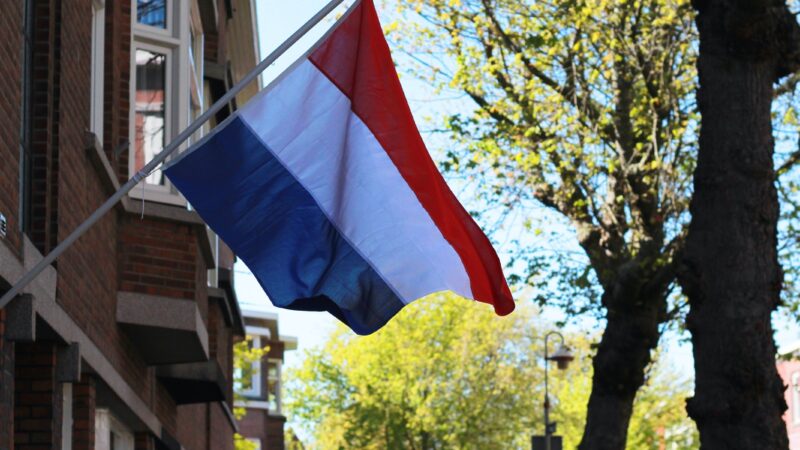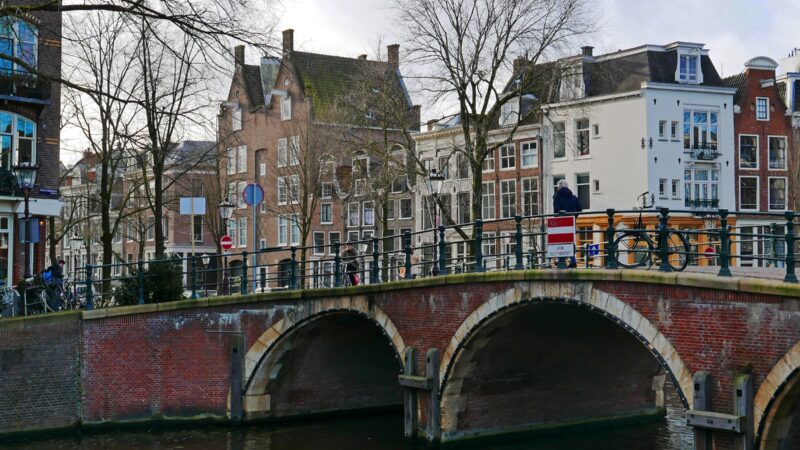Breakfast with Thierry Baudet (Part III)
In mid-July, the Mallard was fortunate to have breakfast with Thierry Baudet, leader of the Dutch ‘Forum for Democracy’ (FVD) party in the Netherlands. We discussed his views on manufactured consent, immigration, CBDC, and climate change; and his new book ‘The Covid Conspiracy’. Part II can be read here.
TM: Why do you think that your party is allowed to exist?
TB: Well, they are currently trying to pass a law to make it possible to forbid it. The Dutch Secret Service published a report about undermining of public faith in established institutions. They call it ‘anti-institutional extremism’. They claim that it occurs when a narrative is created which undermines public trust in institutions. They claim that it is dangerous for democracy. They then claim that that means it should be able to ban any political party which might so undermine trust.
TM: And that just happens to be you?
TB: Yes, parties that disagree with the Covid narrative, parties which might have sympathy for Russia, parties who do not agree with mass immigration. It shows that we are slouching towards totalitarianism. There is one single allowed approach to all issues and there is no room for difference of opinion.
TM: Do you think a party like yours might spring up in the UK?
TB: I don’t know. Your political system is extremely difficult to penetrate for small or fringe parties. It is a general trend in Europe, and probably also in the US, that you are not allowed to doubt the underlying assumptions anymore. Go back to the 1960s and the Vietnam war: then, there were people arguing in America about fighting communism abroad. Nowadays, every politician just agrees that ‘something must be done’ about Russia/climate Change/refugees etc. There is no public discussion allowed. They want militant democracies.
TM: What do you feel are the other differences between FVD and other European right-wing parties?
TB: First, we are much more radical. The AfD, for instance, does not want to leave the EU.
Second, we are the only group to create a social and economic framework for our members. This is not something that we have seen with other movements in Europe, we are the most progressive from that point of view.
Third, we embrace aesthetics and culture. We think that what we offer instead of the other parties is the Western tradition. We talk a lot about beauty, music and traditional architecture. I do not see the others talking about that but it is absolutely crucial to the conservative message. We have aesthetics on our side. We have love on our side. We love the things that have been created for us and the tradition that we have inherited. We are not just liberals; we actually have a vision for a completely different way of living. This has not been crystalised yet but a lot of our members are actively searching a means to be religious again. A means to experience the transcendental dimension in life. You cannot go without those things, it is every aspect of your life which is not just the political.
TM: It seems to me that a lot of people do not care about those transcendental dimensions anymore. Do you think that’s true? If so, why?
TB: Yes, a lot of people don’t care about it. But I also think that there is an ideology behind ugliness. I believe it is linked to the teachings of the Frankfurt school. They believe that beauty, the family, national identity, etc were all elements of fascism. These thinkers have decided that they should target the beautiful. It is why the left wing reveres ugliness. They like the idea of harmony being disturbed, they have been taught that harmony is associated with fascism, and it is their job to destroy it. They are told that if they build things in a beautiful way, it is kitsch. They want ‘happy chaos’ – but that doesn’t exist. We are transitioning to a new era with no focal point, no traditional family. A world where everything is fluid and deconstruct-able. This is very much the dominant philosophy, and it is of course in the interest of large corporations because it turns people into consumers.
TM: Quite a bleak view, Thierry. Do you have any hope? Do you think it will change?
TB: I think that the human will for liberty is stronger but that this malaise may last for decades. I think it might become a lot worse before it gets better.
The only thing that I think I can do is continue fighting. I’m not going to go down with this, and become bitter… I will try as hard as possible to live a good life. Secondly, I think that we can connect with each other and help each other have a nice life. There is a lot that we can do if we are inventive and remain loyal to one another. It is very difficult for any state to control everybody.
We can’t foresee the future in every detail, but I meet a lot of fantastic people speaking out. There is a real will and energy among people to regroup and form alliances and set up platforms.
TM: So, it’s not over?
TB: It’s not over.





On Truth and Democracy
O Tempora, O Mores (L., “Oh the times, Oh the customs”), is an apothegm attributed to Marcus Tullius Cicero (106 – 43 BC), a Roman statesman, attorney, philosopher, and scholar. In his First Oration against Catiline (63 BC) that he delivered in the Roman Senate, Cicero deplored the sorry condition of the Roman Republic, and particularly the Roman citizen, Catiline, who had conspired to foment an insurrection, intended to overthrow the Roman government and Cicero himself, who was at that time serving as the Head-of-State.
The perspectives expressed by Cicero could be ascribed to the sorry state of the virulent political climate and the dysfunctional political parties in our society, which have become dystopian and farcical for the following reasons.
First, it and they have devolved into cults of personality (cult, L., cultus, “worship,” “homage,” “devoted attention to a person or thing”) populated by sycophants (Gk., sycophantes, L., sycophanta, “informer,” “slanderer,” “servile flatterer,” “show the fig” [a vulgar gesture]).
Second, fueled by the toxicity of an unbridled social media, the raison d’etre (Fr., “reason for being”) of many politicians has become self-aggrandizement and power, to the determinant of public service and the commonwealth.
Third, rather than deliberate the substance of issues, they rant, demonize their critics, and employ every fallacy of argumentation in their rhetoric, most frequently argumentum ad hominem (L., “argument against the person”).
Fourth, more willingly than seeking common ground and common cause, they resort to demagoguery, contentiousness, mendacity, litigiousness, and extremism.
Fifth, they are barren of any discretion, decorum, propriety, civility, and self-control.
And sixth, their hypocrisy is unbounded, as they deny any allegations against them and divest themselves of any responsibility or accountability, by assuming a posture of victimization, devoid of any semblance of shame, guilt, remorse, or contrition (“I have done nothing wrong;” “I am innocent;” “It’s politically motivated;” “It’s a witch hunt”).
Collectively, it and they could be described metaphorically as a “ship of fools.”
Das Narrenschiff
Sebastian Brandt (circa 1457-1521) was of Germanic heritage and earned a doctoral degree in canon and civil law from the University of Basel. He served as Imperial Counselor, Judge, and Chancellor under the Holy Roman Emperor, Maximilian I (1459 – 1519). His most famous monograph, written as a humanist and satirist, was entitled Das Narrenschiff (Gr., “ship of fools”) (1494). Allegorically, it railed against the hypocrisies, weaknesses, political intrigues, and vices that were manifest during his lifetime. The author wrote that the ship was laden with and steered by fools. It wandered the ocean aimlessly, but by happenstance sailed to Narragonia, where they encountered Grobian, the patron saint of vulgar and coarse people.
To paraphrase the motif of the allegory, the author described the shipmates and crew as deranged, demented, frivolous, and oblivious; who were floating with the prevailing winds; and who were unhinged, unanchored, and unmoored. The author argued that they were in desperate need of statesmanship and leadership, to restore the ordinance and rule of reason and the ordinance and rule of law, grounded in truth, virtue, excellence, sound judgment, ethicality, and morality. The allegory is remarkably descriptive and prescient of the contemporaneous political climate and the political parties in our society.
The Past is Prologue
William Shakespeare (1564-1616), an English playwright, poet, and actor extraordinaire, in his tragicomedy The Tempest (1610-1611) wrote:
One interpretation of that dialogue is that what had previously happened set the stage for what will follow, and will be the stuff of which our greatness or our fallenness will be made and measured. A cynical interpretation of that dialogue is that we will remain mired in the improprieties, imperfections, misinformation, and disinformation of the past. That notwithstanding, despite the dysfunction, farce, and fantasy that pervades the current political climate and the political parties in our society, both can be mitigated by a courageous, resolute, and willful intent. Consider, in that regard, the Four-Way Test.
The Four-Way Test
The Four-Way Test of the Things We Think. Say, or Do, is an ethical and moral code for personal and professional conduct and relationships. It was composed in 1932 by Mr. Herbert J. Taylor (1893-1978), a business executive and civic leader. It was adopted by Rotary International in 1943, as a standard and a code of conduct by which all communication and interpersonal behavior should be measured and judged.
When we hear or read an assertion in whatever venue, includingsocial media, it must always be analyzed rationally, logically, and skeptically, to discern its validity. The Four-Way Test is applicable in that regard:
Common sense, prudence, and temperance dictate that if the assertion violates any of those tenets, that it is invalid; that it must be rejected; and that it must not be repeated, disseminated, or propagated.
Certainly, it may be advisable to research any assertion via other sources to confirm or refute its validity. Certainly, each of us enjoys freedom of speech/opinion, freedom of conscience, and liberty of choice. Nevertheless, those freedoms and choices imply a responsibility and an obligation to ensure that the assertions and our responses to them are truthful and valid. The intent of such an analysis is to preserve the integrity, honesty, veracity, wellness, health, and safety, of ourselves, our neighbors, our communities, and our commonwealth.
Audent cognoscere veritatem (L., dare to know the truth”).
It is incumbent upon each of us to apply due diligence upon public officials and proper vetting of their assertions. We must critically inquire of and critically analyze the credibility of those individuals and the validity of their assertions. Our allegiance to and support of them must be rational, justifiable, and meritorious (L., meritorious, “deserving of reward,” “worthy of praise or honor”), and not irrational, vacuous, and meretricious (L., meretricious, “pertaining to a harlot,”). Fellow citizens, ubi sumus itiones? (L., “where are we going?”). Abraham Lincoln (1809-1865), attorney-at-law, statesman, and the Sixteenth President of the United States of America, at the Illinois Republican State Convention in Springfield, Illinois, in 1858, paraphrased a citation from Holy Scripture — a house [nation] divided against itself cannot stand. Liberty, freedom, and democracy require a united, virtuous, informed, and engaged citizenry. With resolution and diligence, such citizens could dramatically transform the political climate and the political parties in our society by acceptance and application of the Four-Way Test.
By way of summary, the following quotation is very apropos:
Photo Credit.